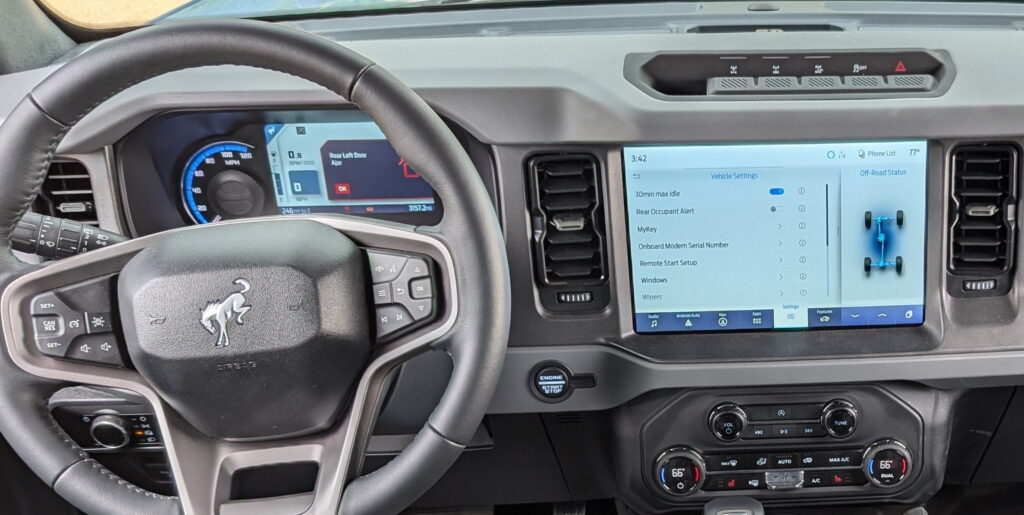- A new patent application from Ford leverages interior microphones to serve relevant ads.
- It could, in theory, also use information like voice commands and navigation directions for the same purpose.
- Despite the application being live, Ford may not ever put the tech into production.
Car companies are always searching for new ways to earn a little more money. It’s why they’ve willingly sold personal information about customers to data brokers. It’s why they want to build subscription packages too. Now, it sounds like Ford might be gearing up to listen to your conversations and then serve you relevant ads based on what you say.
While Ford has applied for this patent, it doesn’t mean that it’ll ever end up using it. There’s no guarantee that it will make it into a production vehicle. At the same time, given the way that companies somewhat shamelessly use our data, it also seems inevitable for something like this to find its way into a car in the future. For now, though, let’s just explain how it’s supposed to function.
More: Ford Seeking To Patent Camera System That Snitches On Speeders
First spotted by Motortrend, patent application 20240289844 has the name “IN-VEHICLE ADVERTISEMENT PRESENTATION SYSTEMS AND METHODS.” It describes several ways to present targeted ads to occupants. As mentioned, it can look at where a driver is headed (via the navigation application) and serve relative ads. Going to school? Maybe you’ll get an ad for an education-focused tech device.
It can also leverage the microphone during voice commands to determine what you might want to buy. Ask it for information on when a local eatery closes and you might get an ad for another restaurant close by. What might sound like the wildest part of this though is that it could listen in on how you react to ads to plan more appropriate ones in the future.

“The method can include as step 506 of determining user preferences for advertisements from any one or more of audio signals within the vehicle and/or historical user data,” it says. In essence, let’s say you exclaim loudly and in a negative way when an ad comes on. The system could, in theory, change how it presents ads to limit that negative feedback.
Again, there’s no way to know for sure if this ever makes it into future Ford products. For now, though, we can just hope that Ford keeps this technology on the shelf.




